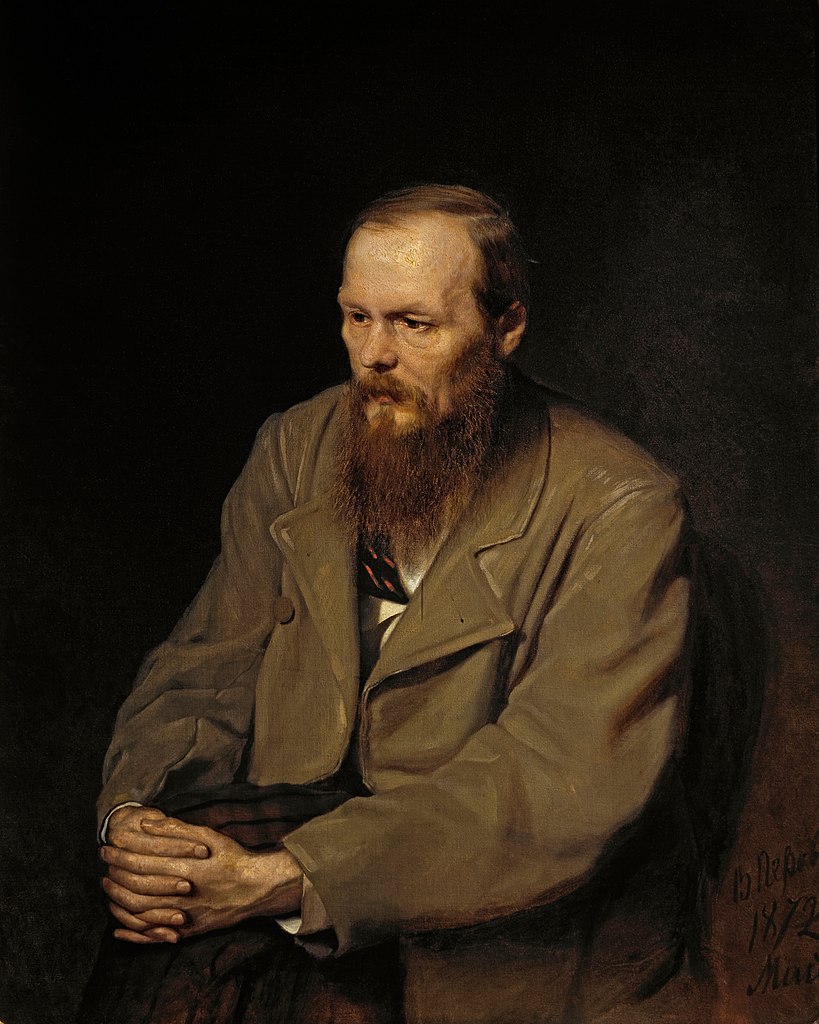Fyodor Dostoyevsky
 |
Fyodor Mikhailovich Dostoyevsky (November 11, 1821 – February 9, 1881) was a Russian author whose works are noted for their extraordinary psychological depth and engagement with religious and philosophical themes. Born the second son of a physician to the poor in Moscow, his nanny read him fairy tales, legends and heroic sagas and his family introduced him to wide range of literature. He attended boarding schools in Moscow, followed by the Nickolayev Military Engineering School in St. Petersburg, where he was a solitary, introverted outsider with a distinctly un-military bearing. In 1846 he published Poor Folk, described as Russia’s first “social novel” by renowned literary critic Belinsky. Commercial success enabled him to focus on his writing and gain access to St. Petersburg literary circles, where he developed an interest in socialism and joined a group that discussed banned books critical of “Tsarist Russia”. Group members were arrested in 1849 and sentenced to death. The sentence was commuted at the last minute to four years in a Siberian prison camp followed by six years of military service. During his time in the military he the widow of an officer. He suffered from epilepsy, and was released from the military due to poor health in 1859. He returned to Russia and 1861 published The House of the Dead, the first book describing the horrid conditions in Russian prisons. He toured Europe for the first time in 1862 and again in 1863, where he lost most of his money gambling. Both his wife and elder brother died in 1864. Returning to St. Petersburg, he published his first major work, Crime and Punishment, in 1866, followed by The Gambler in 1867. He married his stenographer that same year and left for a honeymoon in Germany planned for several months that lasted four years. He returned again to Russia in 1871 and struggled with financial troubles as well as increasingly poor health. In 1873 he began A Writer’s Diary, a continuing collection of essays that attracted the attention of Tsar Alexander II, who commanded an in-presentation of the work and requested that he educate his two sons. While his recognition increased and his mature work continued, his health deteriorated. He was elected to the honorary committee of the Association Litteraire er Atistique Internationale alongside the likes of Victor Hugo, Alfred Tennyson, Ralph Waldo Emerson, and Leo Tolstoy. The Brothers Karamazov was published in 1880. His address at the unveiling of the Pushkin Memorial in 1880 had a significant emotional impact and was met with thunderous applause. When he died in 1881 his funeral was attended by an estimated 50,000 – 100,000 mourners. |
Crime and Punishment
Raskolnikov, the name of the main character in Crime and Punishment, is derived from the Russian “ra..
$12.99
Notes from Underground
Published in 1864, Notes from Underground is considered one of the first existentialist novels. The ..
$9.99
The Gambler
Dostoevsky knew his subject all too well when he wrote The Gambler, as he had a serious addiction to..
$9.99



